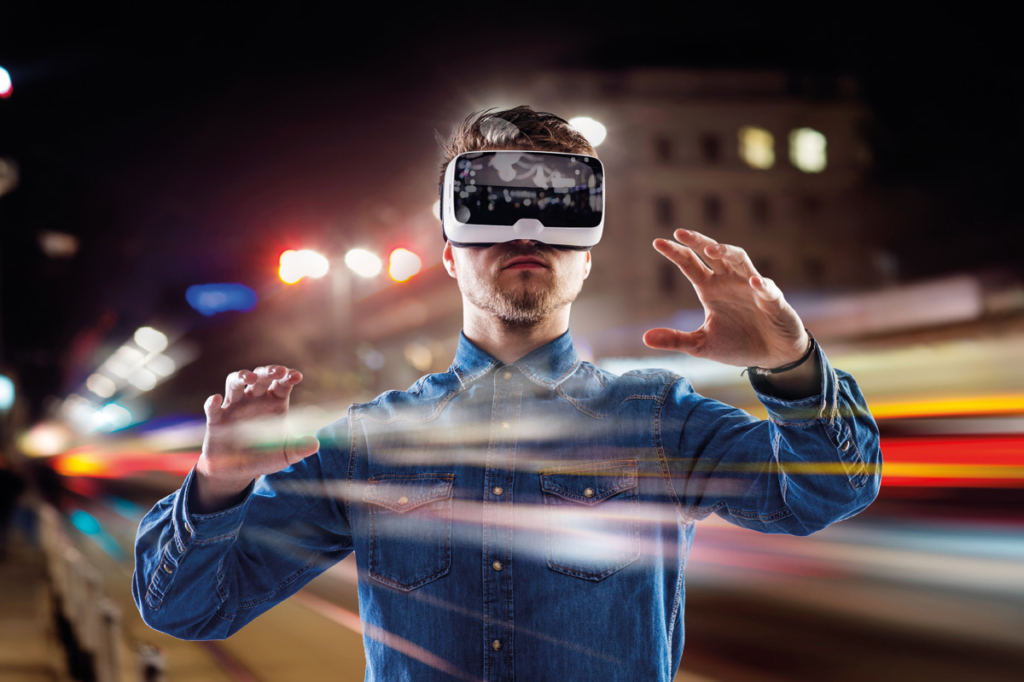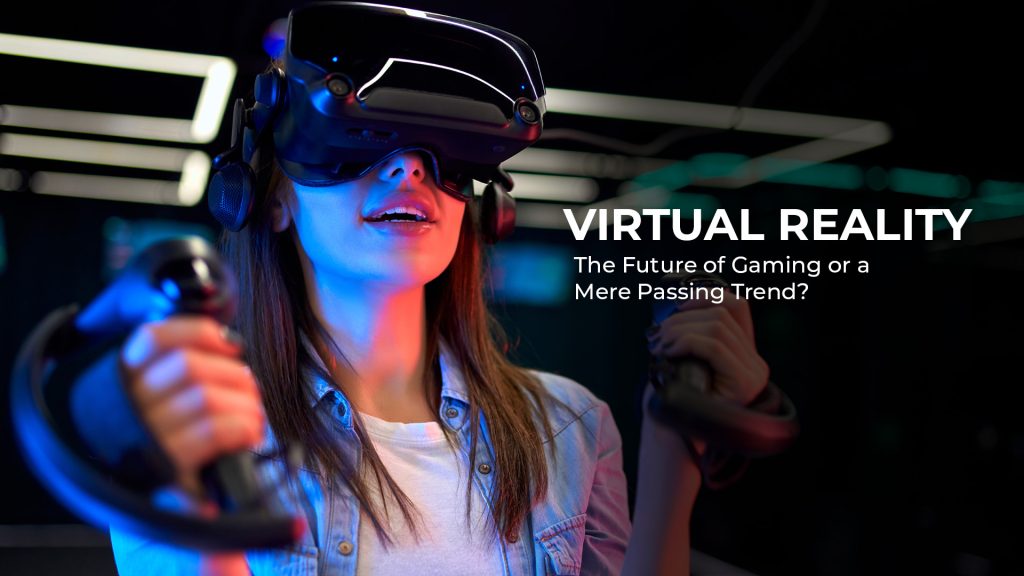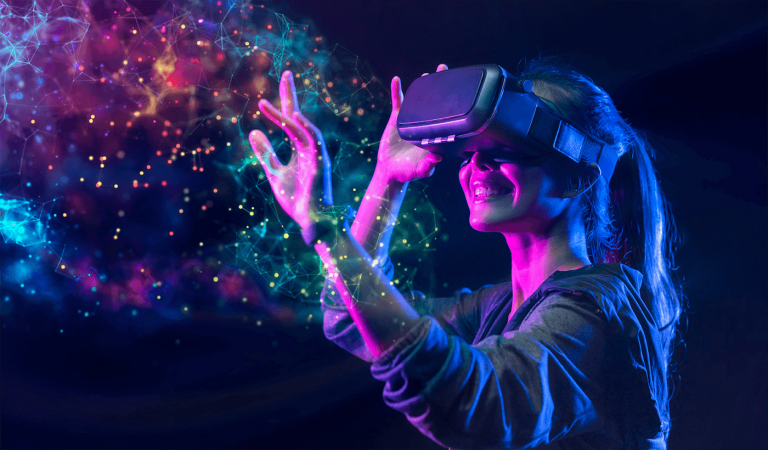In recent years, Virtual Reality (VR) has emerged as a groundbreaking technology poised to revolutionize the gaming and entertainment industry. With its ability to immerse users in captivating digital environments, VR offers unprecedented interactivity and engagement. As technology continues to evolve and become more accessible, it is reshaping the way we perceive and experience entertainment. In this article, we will explore the transformative impact of VR on gaming and entertainment, and delve into the exciting possibilities that lie ahead.

The Rise of Virtual Reality
Virtual Reality technology has been in development for decades, but it has only started to gain mainstream traction in recent years. Advancements in hardware, software, and content creation have made VR more affordable and accessible to consumers. Devices such as the Oculus Rift, HTC Vive, and PlayStation VR have brought immersive gaming experiences into the homes of millions worldwide.
Enhanced Immersion and Interactivity
One of VR’s key aspects that sets it apart from traditional gaming is its ability to provide a truly immersive experience. By wearing a VR headset, users are transported to virtual worlds where they can interact with their surroundings in previously unimaginable ways. Whether exploring fantastical landscapes, engaging in heart-pounding action sequences, or solving intricate puzzles, VR allows players to feel like they are truly part of the game world.
Breaking Down Barriers
VR also has the potential to break down barriers in gaming and entertainment. Unlike traditional media formats such as movies or television shows, which are passive experiences, VR puts users in control of their experience. This level of agency allows for greater personalization and customization, catering to each user’s individual preferences and interests. Additionally, VR has the ability to transport users to places and experiences that may be physically inaccessible to them, whether due to geographical limitations or physical disabilities.
Expanding the Boundaries of Creativity
From a creative standpoint, VR presents exciting new possibilities for game developers and content creators. Its immersive nature allows for new forms of storytelling and gameplay mechanics that were previously impossible. Developers can experiment with innovative gameplay concepts, unique art styles, and interactive narratives, pushing the boundaries of what is considered possible in gaming and entertainment.
Social Interaction in Virtual Worlds
One of the most compelling aspects of VR is its potential to facilitate social interaction in virtual environments. With the rise of multiplayer VR experiences and virtual social platforms, users can connect and interact with others from around the world in shared virtual spaces. Whether collaborating on a team-based mission, exploring a virtual museum together, or simply hanging out in a virtual recreation of a real-world location, VR enables new forms of socialization and community building.
Challenges and Opportunities
While VR holds immense promise for the future of gaming and entertainment, it also faces a number of challenges. Chief among these is the need for continued technological advancements to improve hardware performance, reduce costs, and enhance the overall user experience. Additionally, concerns around issues such as motion sickness, privacy, and content moderation will need to be addressed as VR becomes more widespread.
The Road Ahead
Despite these challenges, the future of VR in gaming and entertainment looks incredibly bright. As technology continues to advance and VR becomes more mainstream, we can expect to see even more immersive experiences, innovative gameplay mechanics, and groundbreaking content. Whether exploring distant galaxies, battling fierce enemies, or simply hanging out with friends in virtual worlds, the possibilities are endless in VR gaming and entertainment.
Exploring the Societal Impact of VR in Entertainment
Virtual Reality’s impact extends beyond just the realm of entertainment; it has the potential to influence society in profound ways:
Accessibility and Inclusivity
VR technology can make entertainment more accessible and inclusive than ever before. People with disabilities or mobility issues can experience virtual worlds in ways that may not be possible in the physical world. VR can also bridge geographical barriers, allowing users worldwide to unite in shared virtual spaces and experiences.
Empathy and Understanding
Virtual Reality has the unique ability to foster empathy and understanding by allowing users to step into the shoes of others and see the world from different perspectives. VR experiences that simulate real-world scenarios, such as experiencing life as a person with a disability or living in a different culture, can help build empathy, promote social awareness, and encourage positive social change.
Education and Learning
VR has the potential to revolutionize education by providing immersive and interactive learning experiences. In virtual environments, students can explore historical events, dissect complex scientific concepts, and engage in hands-on experiments. VR learning experiences can make education more engaging, memorable, and accessible to learners of all ages and backgrounds.
Therapeutic Applications
Virtual Reality is increasingly used as a therapeutic tool for treating various physical and mental health conditions. VR-based therapies can help alleviate symptoms of anxiety, PTSD, phobias, and other mental health disorders by exposing patients to controlled virtual environments that simulate real-life situations in a safe and supportive setting. VR can also be used for pain management, rehabilitation, and cognitive training.
Environmental Impact
Virtual Reality can potentially reduce the environmental footprint of entertainment by offering virtual alternatives to physical experiences such as travel, events, and theme parks. By allowing users to experience virtual environments without needing travel or physical infrastructure, VR can help reduce carbon emissions, conserve natural resources, and mitigate the environmental impact of entertainment-related activities.
Looking Ahead: The Future of VR in Entertainment
As Virtual Reality continues to evolve and mature, we can expect to see even more transformative changes in the entertainment industry:
Advancements in Hardware and Technology
Continued advancements in VR hardware, such as higher-resolution displays, improved tracking systems, and more comfortable and ergonomic headsets, will further enhance the immersive experience and make VR more accessible to a wider audience.
Expansion of Content and Experiences
The VR content ecosystem will continue to expand, with a greater variety of experiences ranging from games and films to educational simulations, virtual travel, and social experiences. Content creators will explore new genres, formats, and storytelling techniques to push the boundaries of what is possible in VR entertainment.
Integration with Emerging Technologies
VR will increasingly intersect with other emerging technologies such as Augmented Reality (AR), Artificial Intelligence (AI), and the Internet of Things (IoT) to create even more immersive and interactive experiences. Integrating VR with these technologies will open up new entertainment, gaming, communication, and collaboration possibilities.
Exploring the Impact of VR on Different Entertainment Mediums
Beyond gaming, Virtual Reality is also making waves in other forms of entertainment.
Let’s delve deeper into how VR is reshaping various entertainment mediums:
Artists and designers use VR tools to create immersive 3D artworks, interactive installations, and virtual sculptures. Virtual reality art galleries and museums provide a platform for artists to showcase their work to a global audience, breaking down geographical barriers and reaching new audiences.
Addressing Challenges and Seizing Opportunities

While Virtual Reality holds tremendous promise for the future of entertainment, several challenges need to be addressed to fully realize its potential:
| Industry | Application |
|---|---|
| Film and Television | VR enhances cinematic experiences, placing viewers at the center of the action for immersive storytelling. |
| Live Events and Concerts | Virtual reality allows audiences to attend live events and concerts remotely, offering a sense of presence and immersion akin to being in person. |
| Education and Training | VR simulations provide lifelike training scenarios across various industries, facilitating hands-on learning experiences that are safe and effective. |
| Travel and Tourism | VR enables virtual travel experiences, allowing users to explore destinations worldwide and aiding in destination planning and marketing. |
| Art and Creativity | VR opens new avenues for artistic expression and creativity, offering innovative tools and immersive environments for artists and creators. |
Despite these challenges, Virtual Reality presents vast and far-reaching opportunities in the entertainment industry. By embracing innovation, collaboration, and creativity, we can unlock VR’s full potential to transform how We experience and interact with entertainment in the digital age. Whether exploring virtual worlds, connecting with others in shared experiences, or unleashing our creativity in immersive environments, VR is undoubtedly the future of entertainment.
Conclusion
Virtual Reality is poised to transform the gaming and entertainment industry in ways we are only beginning to imagine. With its ability to provide immersive experiences, break down barriers, and expand the boundaries of creativity, VR represents the future of interactive entertainment. As the technology continues to evolve and improve, we can look forward to a future where VR gaming and entertainment are more immersive, engaging, and accessible than ever before.

